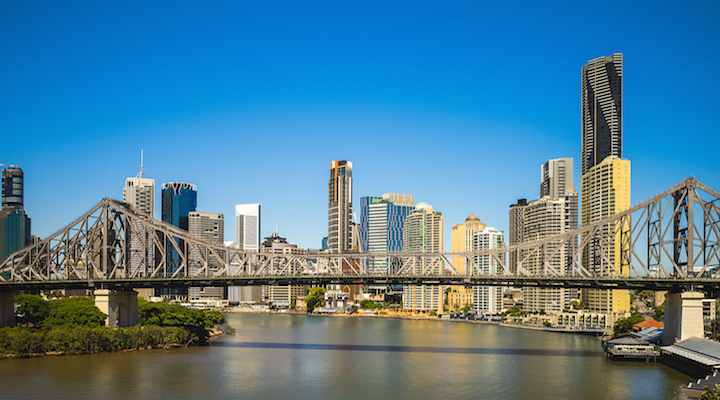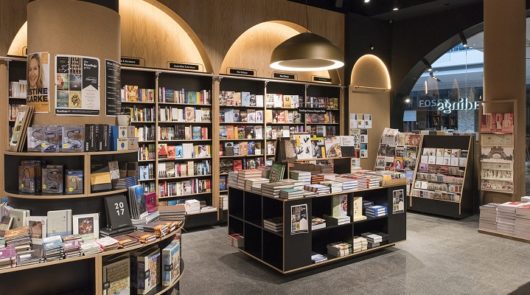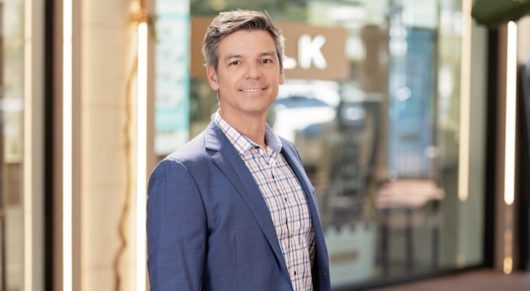Retail groups have welcomed Brisbane’s confirmation as host of the 2032 Olympics, eyeing a share of the predicted $17.6 billion economic impact the event will bring.
But concerns have been raised by a lawyer calling for planning to include strategies that would prevent “the debacle” when Brisbane hosted the Commonwealth Games in 2018 which left Gold Coast business suffering heavy losses.
The Olympics – scheduled to run from July 23 to August 8, followed by the Paralympics from August 24 to September 5 – are predicted to attract 3.6 million international visitors.
During the 12 years ahead, the Brisbane Cricket Ground (the Gabba) will undergo a $1 billion redevelopment to be ready for the opening ceremony. Thirty-one other venues in southeast Queensland will host events, most of which are existing or will be constructed for temporary use before being repurposed. While most of the competition will be located at venues within 5km of Brisbane’s CBD, seven will be hosted on the Gold Coast, and four on the Sunshine Coast.
Australian Retailers Association CEO Paul Zahra said Brisbane’s confirmation is the positive news Australia needs at a time when more than half the population is subject to Covid lockdowns and restrictions.
“This is not only a fantastic coup for Queensland and Brisbane, but for Australia more broadly with the 2032 Olympics to deliver $17.6 billion in social and economic benefits according to KPMG.
“The benefits for Queensland are expected to be $8.1 billion with nearly 123,000 jobs to be created nationally from the associated investments in infrastructure and event operations.
“The massive boost that will come with international tourists will naturally deliver flow-on benefits for retailers and will enhance Brisbane’s profile as an attractive place for businesses to invest and set up shop.”
Zahra said the event would prompt a “reinvention” of many urban destinations, as happened with the Sydney Olympics in 2000 – including retail strips and the CBD.
“We won’t have to wait until 2032 for these benefits to flow through. The status that comes with being an Olympic host city will put Brisbane firmly on the international stage and will enhance its ability to attract tourists and major events in the years leading up to and following 2032.
“We all remember how incredible the Sydney Olympics were in 2000 and the legacy it left behind. Brisbane will now get to experience that joy and economic uplift that can only come with hosting the world’s biggest sporting event,” said Zahra.
NRA CEO Dominique Lamb said hosting the Olympics will provide “a golden opportunity” for Brisbane to cement itself as a world-class city and tourist destination.
“But the necessary infrastructure needs to begin to be put in place immediately so that tourists can navigate easily across the southeast. This means investing in roads and public transport that makes it convenient travelling between the three key centres of the Sunshine Coast, Brisbane and Gold Coast.
Lamb added the announcement would enhance the city’s ability to attract high-profile, international retailers.
“Projects such as Queen’s Wharf are already putting Brisbane firmly in the sights of international retailers, but the Olympics will only heighten the appetite of high-profile brands to descend on the River City.
“The Olympics represents a chance to fundamentally change Brisbane’s retail scene. It would provide a cash bonanza for small and local businesses, while attracting some of the world’s leading retail brands,” said Lamb.
Gold Coast lawyer urges caution
However, Gold Coast City lawyer Bruce Simmonds warns that any planning for the city to be part of the Olympic Games in 2032 must include strategies to avoid a repetition of the business losses due to the Commonwealth Games “debacle” of 2018.
“Local businesses still shudder at the memory of [Commonwealth] Games organisers’ scare tactics about likely games overload on the city’s streets and huge crowds that never eventuated.
“Local businesses, cafes, restaurants, retailers and nightclubs were all warned to expect a chaotic, busy period with visitors during the games, while local residents were urged to stay off the streets.”
Simmonds said that hospitality businesses anticipating a boom time hired extra staff and bought in more food and drink expecting a combined school holidays and games visitor bonanza. But the scare tactics backfired badly – many locals left town, the much-hyped 650,000 visitors never arrived and businesses were left facing crippling losses as much of the Gold Coast resembled a “ghost town”.
“In the end we had the bizarre sight of city officials pleading for locals to get out and support businesses,” he said.






